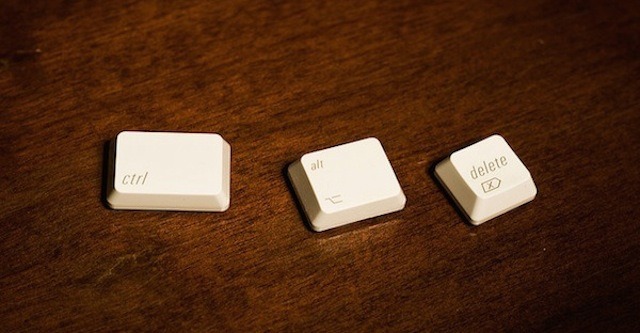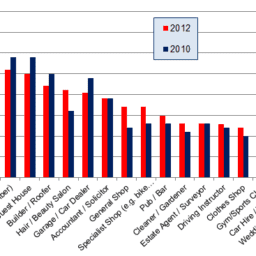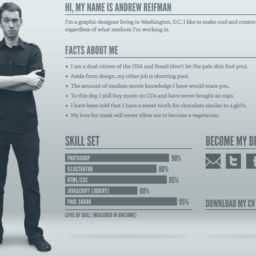
As a student you have to be concerned even more about your online image than how you present yourself in an interview. The odds for getting internships and jobs are against you, at a time where more people are graduating with advanced degrees and the economy is in peril. Here is how students can brand themselves online by mashable.
The most beneficial action young job seekers can take while still in school is to pay attention to what’s happening online.
These days, an impressive resume might get you noticed, but it won’t necessarily land you a job interview on its own. You’ll need a well-rounded web presence, as well.
“The first thing an employer is going to do is Google you,” Alexandra Levit, generational speaker and author of Blind Spots: 10 Business Myths You Can’t Afford to Believe on Your New Path to Success tells Mashable. “The worst thing is to have something negative pop up. In the absence of anything negative, having nothing come up really doesn’t say much about your level of seriousness in terms of being out there and being professional.”
Whatever Google turns up will determine your fate. Every Twitter message, Facebook status and Linkedinupdate is a reflection of one’s personality, capabilities and priorities.
Busy high school and college students may not yet be thinking about post-grad jobs, but hiring managers say it’s an ideal time for these students to being establishing strong online identities.
Here’s how leading career experts suggest students get started.
Know What’s Online
Again, Google search yourself and see what pops up. Take an inventory of all the social networks you have joined, plus the ones you’ve neglected (like that old MySpace page).
Deactivate all the accounts you haven’t touched in a while, says Levit. Otherwise, a prospective employer might find something embarrassing or unprofessional on a long-forgotten blog.
Remove all unprofessional content from your public accounts. This means combing through the vacation photos on your Facebook page, for example. Your future employer shouldn’t see pictures of you in a skimpy bikini or the fish-bowl-sized margarita you managed to drink by yourself.
“Even if you have privacy settings on things, employers have a nice little way to get through privacy settings,” warns Levit.
She suggests an easy way to determine what needs to go. “If you wouldn’t be comfortable having it on the front page of The New York Times, it probably shouldn’t be anywhere online.”
Supercharge Your Personal Brand
There’s a reason why the world continues to equate Oprah Winfrey to motivational TV and aha! moments. Even after walking off the daytime stage, The Oprah Winfrey Show host continues to keep her personal brand consistent across many different mediums. Her name is synonymous with entertainment and empowerment.
Your name is at the forefront of your personal brand. It’s important to ensure you’re showing up in searches. Hiring manager and career counselor Heather Huhman recommends high school students reserve their names and social media handles on Twitter, Facebook, Linkedin, About.me and other niche networks.
“It’s really important that you take as much control of your personal brand as possible, and that really starts with owning your own name,” says Huhman.
The second step is figuring out your brand message and making sure it’s consistent across those platforms. Your brand message should convey your interests, personal strengths, experience and future goals. Basically, you’re telling employers who might be looking at your social profiles why they should consider you for the open position. In a nutshell, set yourself apart from other candidates.
It’s important to be professional on all public social networks. Use careful grammar, punctuation and consistency in your overall message.
Leveraging Social Media
Generation-Y job seekers should be using social media to connect, learn and broadcast their unique voice, says Huhman.
“Twitter is a close enough community where you can make one-on-one connections by following someone and commenting on their news items,” adds Levit. It’s a place where you can ask questions and get answers.
Levit recommends updating your Twitter or public social media page at least once a week while in school. If you’re serious about establishing an online brand, Levit suggests updating daily.
Students should be reading and engaging in the conversations happening, says Huhman. Sharing interesting content and opinions about industry-relevant topics is crucial.
“Social media is a great tool for finding articles that are good to read about your industry and asking people in a low confrontational way for an informational interview,” says Huhman. “Utilize it to learn and see exactly what you’ll be doing.”
Most importantly, students should be using their social media accounts to display thought leadership. Huhman recommends starting a blog to increase web visibility. A personal blog is a place where you can tell recruiters about yourself, attach your resume and showcase your best work.
“I have actually hired several people in the past because I first found their blog and I liked what they were saying,” Huhman says. “Participating in the communities that exist out there and letting your voice be heard is definitely important.”
In the digital era, sharing your story is easier than ever. Your job is to consistently build your credibility and visibility online. Being active in crafting your personal brand ensures you’re getting the right ideas across to the companies and brands you want to work for.
Do you devote a certain amount of time to personal branding every day? Tell us about your experience.
Blog source : Mashable.






